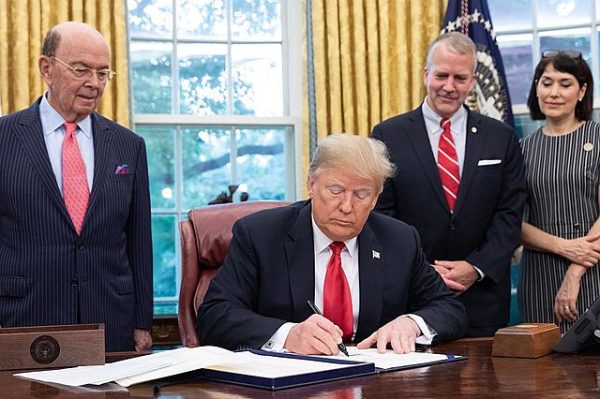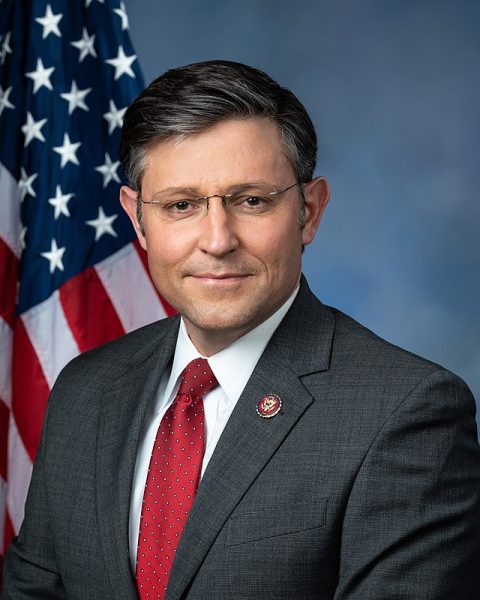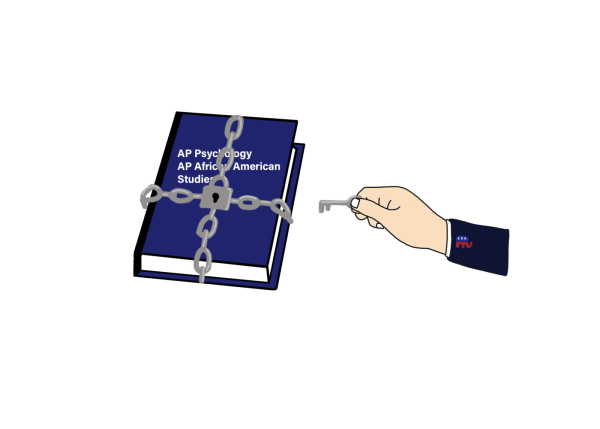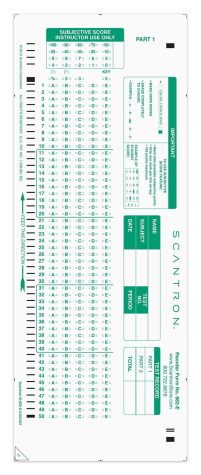Trump’s tepid response sets unpresidential precedent
September 8, 2017
The Charlottesville, Va. violent protest and deadly car attack on Aug. 12 was nauseating. It was appalling, deplorable and everything the United States has never stood for and never should stand for.
We at The Southerner refuse to ignore the alt-right group, a group that, in its own words, rejects multiculturalism, immigration, feminism and political correctness. This is a group that rejects traditional conservatism in support of more radicalized white nationalism, a group that proudly associates with the Neo-Nazism movement and the Ku Klux Klan. We direly needed comfort and support from our president to help the nation recover from the domestic terrorism of James Alex Fields that led to the tragic death of one woman and the injury to 19 others. Instead, we were told that “both sides were to blame” in what happened in Charlottesville.
Enter: Donald Trump, the President of the United States for the past seven months.
Trump has never been “politically correct,” and in fact, many republicans who voted for him found his bluntness appealing. We understand the rationale behind spurning traditional politics, but even a candidate who actively worked to distance himself from the rhetoric of a typical campaign realizes that the nation sometimes needs to come together, not split apart.
Politics are tiring; that is something anyone who has ever experienced the bipartisan system we call leadership can agree on. What we as a publication do not overlook, however, is our president spewing hate and neglecting to unite the country after a blatant infringement on the natural rights we have all been promised by the U.S. Constitution.
Because of his extensive commitment to his loyal, Southern, conservative support base, Trump has been very careful not to offend anyone who has supported him throughout his presidency. After the Charlottesville attack, he walked on eggshells so as not to alienate ultraconservatives who historically have supported him.
Trump tried to keep his devoted support base by tweeting that there were “good ones” left on the side of the alt-right. And his plan worked. Following his tweets, Trump received positive feedback from some of the most racist individuals and organizations in the United States, including David Duke, a white nationalist former KKK leader and Holocaust denier, and Richard Spencer, an icon for American white supremacy. In the past, Trump has been awfully quick to sound the terrorism alarm via Twitter whenever the attacker was of a minority race, different religion, or from a different country, but as soon the attacker is one of his own, his defense mechanisms were suddenly engaged.
It seems that the president only responds appropriately when his name isn’t involved. On Aug. 17, after a terrorist attack in Barcelona, Spain, Trump almost immediately sent out a tweet saying, “Stay tough and strong, we love you!” This sympathetic, encouraging response to an event that generated terror is what Americans were searching for on Aug. 12. They were looking from both the left and right sides of the aisle, wondering: “Why was this attack not considered domestic terrorism, and why is our president blaming those who tried to stop it?”
Almost every Grady student has likely pondered over what they would have done if they were alive during the Civil Rights era or during the Holocaust. Of course, we would all like to think we would be marching alongside Martin Luther King, or protecting and showing love and acceptance to those living in fear in Nazi Germany.
In all likelihood, what students are doing now, during this time of political turmoil and revitalizations of Neo-Nazis and the KKK, is what they would have done then. Grady students should ask themselves what they can do to help shine light on the injustices happening around them. Stop sitting by and reading tweets from a president who equates anti-hate protesters to dangerous nationalists. Make a difference. Act now.











